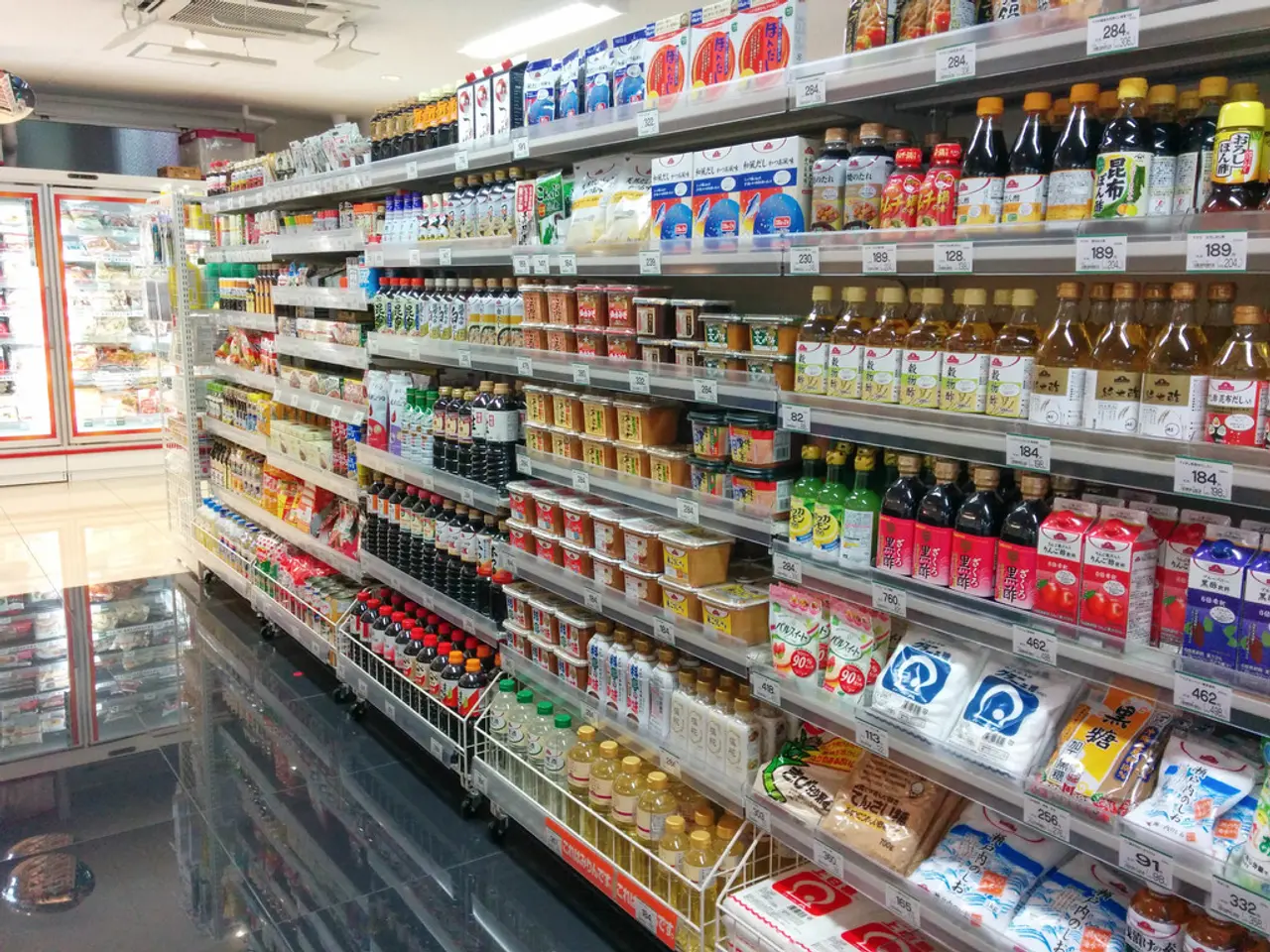US Tariffs: German SMEs Fret over Indirect Fallout in Metal, Auto, and Machinery Sectors
- *
American Small and Medium Enterprises (SMEs) mainly focus on potential indirect impacts of US tariffs - Small- and Medium-sized Enterprises (SMEs) in Germany fret over potential secondary consequences of US tariffs
German small and medium enterprises (SMEs) in the metal, automotive, and machinery sectors may face several indirect repercussions from US tariffs, as per a DZ Bank report. Potential issues include soaring product prices in the US or reduced demand for exports to the American market.
DZ Bank's Analyst Claus Niegsch points out, "While US goods may become pricier, goods from other nations originally intended for the American market could wind up in Europe, potentially lowering prices here." However, around two-thirds of companies in these industries express concern about their trading partner's business being affected by US tariffs, resulting in a negative impact on their own businesses.
Conversely, 29% of companies fear retaliatory tariffs from the EU could be more detrimental than direct import duties in the US. Almost 3 in 10 companies are uncertain about direct consequences, such as higher procurement prices, while only 19% anticipate no negative effects.
The DZ Bank surveyed over 1,000 owners and managers of German SMEs in March 202X, during a time when tariff levels for EU goods were unknown. As of March 12, 25% tariffs on steel and aluminum were already in effect. The survey is said to be representative.
Indirect Consequences:The study hints at several potential indirect consequences for German SMEs:
- Supply Chain Disruptions and Surged Costs: US tariffs may impinge upon global value chains by making intermediate goods costlier or rendering them less competitive, leading to mounting production costs or diminished demand for SME exports.
- Slump in Export Demand: Tariffs tend to stifle international trade and decelerate global economic growth. Such a weaker trade environment may, in turn, induce reduced orders from foreign partners, negatively affecting German SMEs.
- Heightened Uncertainty and Risk: Trade tensions and ever-changing tariffs breed uncertainty that may lead US companies to adjust their supply chains or sourcing strategies. This modification may result in SMEs grappling with volatile demand or complying with changing cost and compliance standards.
- Competitive Handicaps: Tariffs could encourage US companies or rivals from other countries to swap out Germ SME suppliers for local or non-tariffed alternatives. This competition may force SMEs to boost efficiency or seek new markets to stay afloat.
In essence, DZ Bank underscores that while US tariffs target imports primarily, their impact can cascade to increased costs, supply chain disruptions, and diminished export demand in the metal, automotive, and machinery sectors. To mitigate these risks, strategic adaptations, such as supply chain resiliency, market diversification, and cost management, are essential.
- Germany
- DZ Bank AG
- USA
- SMEs
- European Union (EU)
- Frankfurt am Main
- Metal
- Machinery
- DZ Bank's analyst, Claus Niegsch, warns that US tariffs could lead to a decrease in prices for goods from other nations being redirected to Europe, potentially increasing competition for German SMEs in the metal, automotive, and machinery sectors.
- The indirect consequences of US tariffs on German SMEs, as suggested by the DZ Bank study, include supply chain disruptions and surged costs, a slump in export demand, heightened uncertainty and risk, and competitive handicaps.
- Despite concerns about retaliatory tariffs from the EU, a majority of German SMEs in the metal, automotive, and machinery sectors are more worried about the potential negative impact on their businesses due to their trading partners being affected by US tariffs.
- As most of the tariffs on EU goods are unknown, nearly two-thirds of the companies surveyed by DZ Bank expressed concern about the indirect effects of US tariffs, with only 19% anticipating no negative effects on their businesses.




